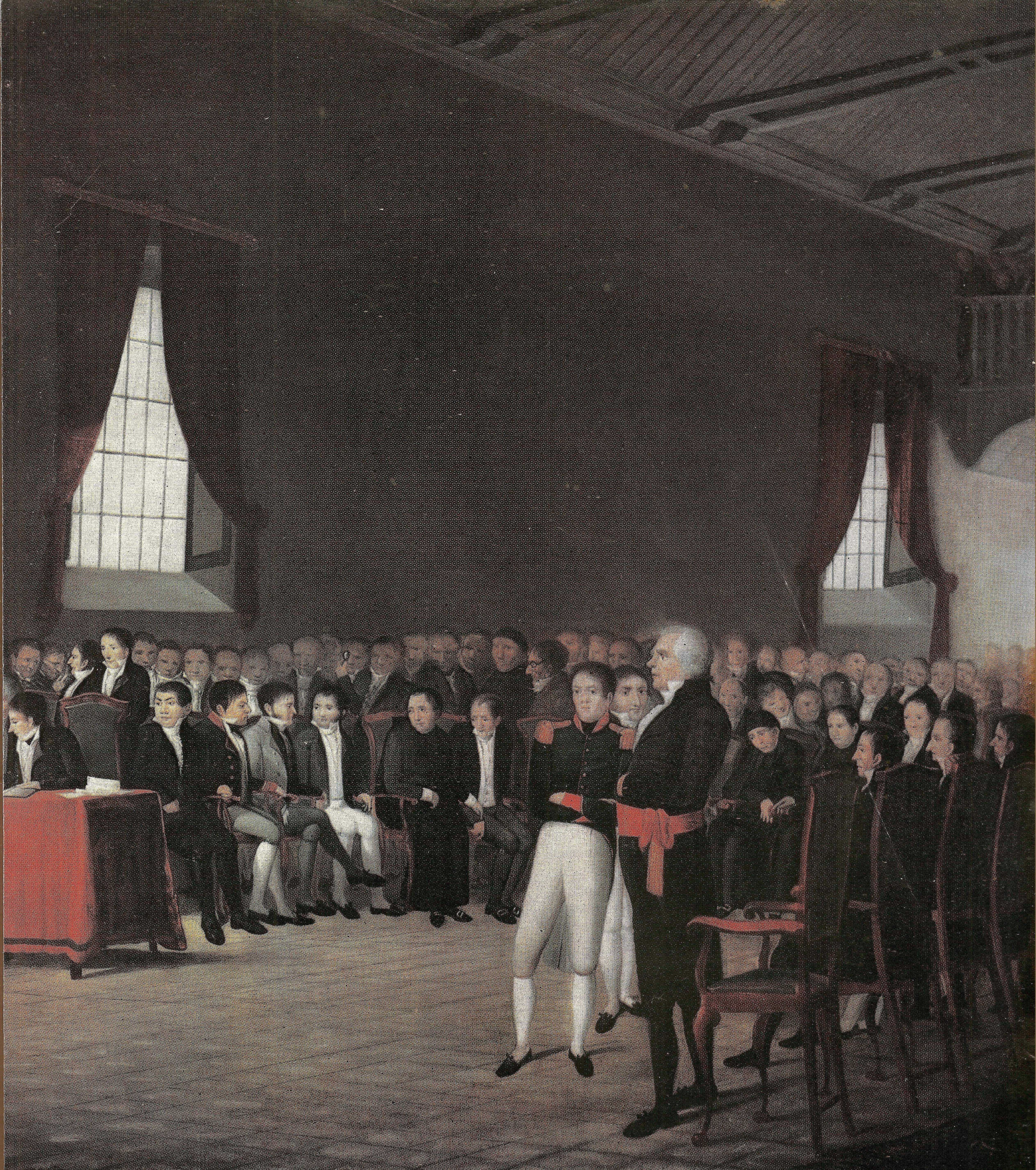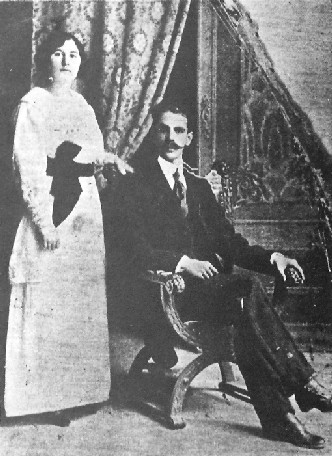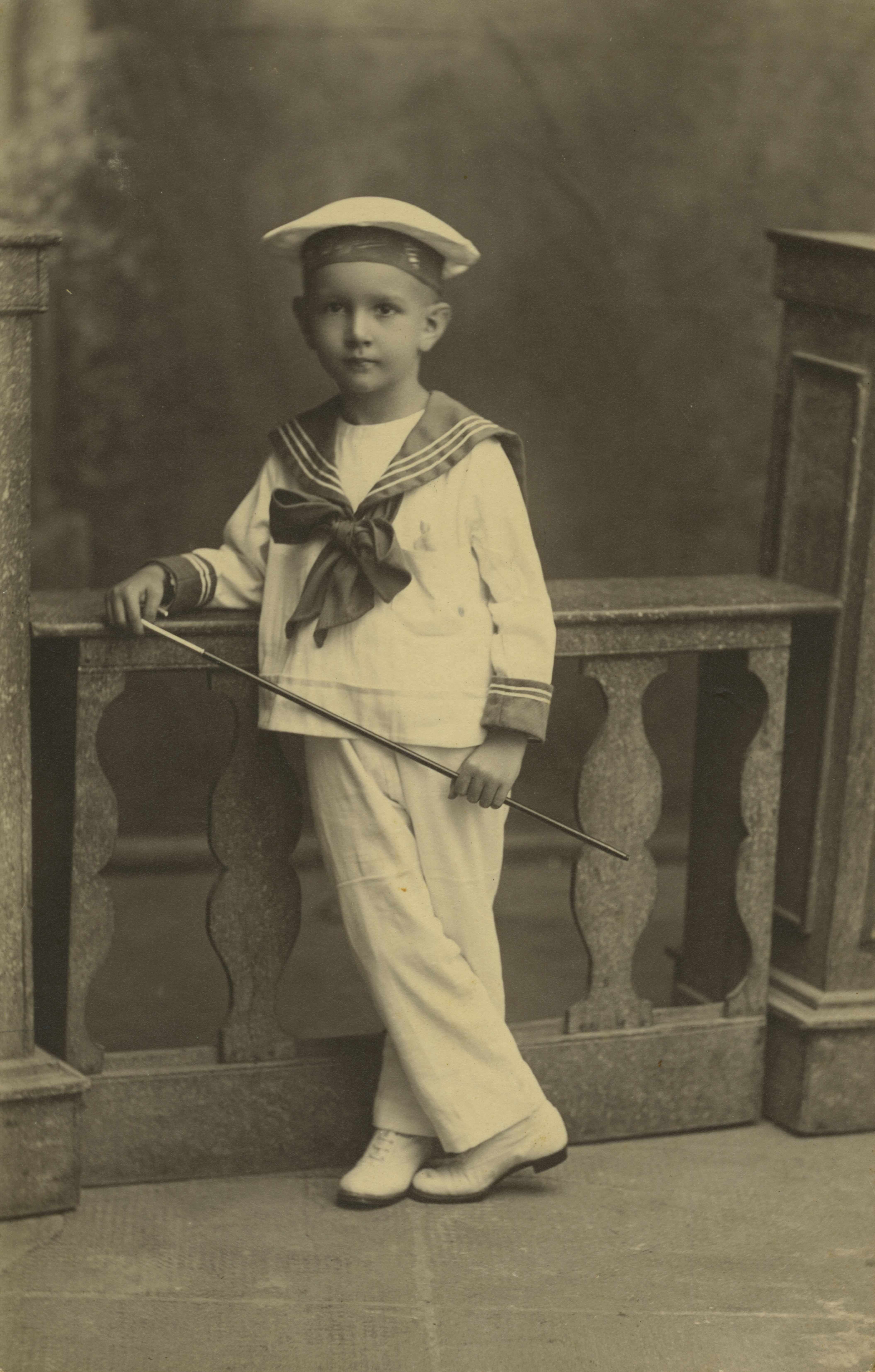|
El Trienio Adeco
El Trienio Adeco was a three-year period in Venezuelan history, from 1945 to 1948, under the government of the popular party Democratic Action ( es, Acción Democratica, its adherents ''adecos''). The party gained office via the 1945 Venezuelan coup d'état against President Isaías Medina Angarita, and held the first democratic elections in Venezuelan history, beginning with the 1946 Venezuelan Constituent Assembly election. The 1947 Venezuelan general election saw Democratic Action formally elected to office, but it was removed from office shortly after in the 1948 Venezuelan coup d'état. Background In exile Rómulo Betancourt had flirted with communism but he came to believe that he wasn’t going to get very far along that path. President Isaías Medina Angarita fostered the further professionalization of the Venezuelan officer corps. Among others, he sent Capt. Marcos Pérez Jiménez to the Peruvian military academy, which was reputed in Latin America as being very ef ... [...More Info...] [...Related Items...] OR: [Wikipedia] [Google] [Baidu] |
Venezuela
Venezuela (; ), officially the Bolivarian Republic of Venezuela ( es, link=no, República Bolivariana de Venezuela), is a country on the northern coast of South America, consisting of a continental landmass and many islands and islets in the Caribbean Sea. It has a territorial extension of , and its population was estimated at 29 million in 2022. The capital and largest urban agglomeration is the city of Caracas. The continental territory is bordered on the north by the Caribbean Sea and the Atlantic Ocean, on the west by Colombia, Brazil on the south, Trinidad and Tobago to the north-east and on the east by Guyana. The Venezuelan government maintains a claim against Guyana to Guayana Esequiba. Venezuela is a federal presidential republic consisting of 23 states, the Capital District and federal dependencies covering Venezuela's offshore islands. Venezuela is among the most urbanized countries in Latin America; the vast majority of Venezuelans live in the cities of the n ... [...More Info...] [...Related Items...] OR: [Wikipedia] [Google] [Baidu] |
History Of Venezuela
The history of Venezuela reflects events in areas of the Americas colonized by Spain starting 1522; amid resistance from indigenous peoples, led by Native caciques, such as Guaicaipuro and Tamanaco. However, in the Andean region of western Venezuela, complex Andean civilization of the Timoto-Cuica people flourished before European contact. In 1811, it became one of the first Spanish-American colonies to declare independence, which was not securely established until 1821, when Venezuela was a department of the federal republic of Gran Colombia. It gained full independence as a separate country in 1830. During the 19th century, Venezuela suffered political turmoil and autocracy, remaining dominated by regional ''caudillos'' (military strongmen) until the mid-20th century. Since 1958, the country has had a series of democratic governments. Economic shocks in the 1980s and 1990s led to several political crises, including the deadly Caracazo riots of 1989, two attempted coups in 199 ... [...More Info...] [...Related Items...] OR: [Wikipedia] [Google] [Baidu] |
Rómulo Gallegos
Rómulo Ángel del Monte Carmelo Gallegos Freire (2 August 1884 – 5 April 1969) was a Venezuelan novelist and politician. For a period of nine months during 1948, he governed as the first freely elected president in Venezuela's history. He was removed from power by military officers in the 1948 Venezuelan coup. Rómulo Gallegos is considered the most relevant Venezuelan novelist of the 20th century, and a prominent figure in Latin American literature. Early life and writings Rómulo Gallegos was born in Caracas to Rómulo Gallegos Osío and Rita Freire Guruceaga, into a family of humble origin. He began his work as a schoolteacher, writer, classical music enthusiast, and journalist in 1903. His novel '' Doña Bárbara'' was first published in 1929, and it was because of the book's criticisms of the regime of longtime dictator Juan Vicente Gómez that he was forced to flee the country. He took refuge in Spain, where he continued to write: his acclaimed novels ''Cantaclaro'' (1 ... [...More Info...] [...Related Items...] OR: [Wikipedia] [Google] [Baidu] |
Clientelism
Clientelism or client politics is the exchange of goods and services for political support, often involving an implicit or explicit quid-pro-quo. It is closely related to patronage politics and vote buying. Clientelism involves an asymmetric relationship between groups of political actors described as ''patrons, brokers'', and ''clients''. In client politics, an organized minority or interest group benefits at the expense of the public. Client politics may have a strong interaction with the dynamics of identity politics. This is particularly common in a pluralist system, such as in the United States, where minorities can have considerable power shaping public policy. The opposite of client politics is 'entrepreneurial' politics, or conviction politics. Although many definitions for clientelism have been proposed, according to the political scientist Allen Hicken, it is generally thought that there are four key elements of clientelistic relationships: * Dyadic relationships: S ... [...More Info...] [...Related Items...] OR: [Wikipedia] [Google] [Baidu] |
Agrarian Reform
Agrarian reform can refer either, narrowly, to government-initiated or government-backed redistribution of agricultural land (see land reform) or, broadly, to an overall redirection of the agrarian system of the country, which often includes land reform measures. Agrarian reform can include credit measures, training, extension, land consolidations, etc. The World Bank evaluates agrarian reform using five dimensions: (1) stocks and market liberalization, (2) land reform (including the development of land markets), (3) agro-processing and input supply channels, (4) urban finance, (5) market institutions. The United Nations thesaurus sees agrarian reform as a component of agricultural economics and policy, with a specific impact on rural sociology, and broader than land reform, describing agrarian reform as:Reforms covering all aspects of agrarian institutions, including land reform, production and supporting services structure, public administration in rural areas, rural social welfare ... [...More Info...] [...Related Items...] OR: [Wikipedia] [Google] [Baidu] |
Juan Pablo Pérez Alfonso
''Juan'' is a given name, the Spanish language, Spanish and Manx language, Manx versions of ''John (given name), John''. It is very common in Spain and in other Spanish-speaking communities around the world and in the Philippines, and also (pronounced differently) in the Isle of Man. In Spanish, the diminutive form (equivalent to ''Johnny'') is , with feminine form (comparable to ''Jane'', ''Joan'', or ''Joanna'') , and feminine diminutive (equivalent to ''Janet'', ''Janey'', ''Joanie'', etc.). Chinese terms * ( or 娟, 隽) 'beautiful, graceful' is a common given name for Chinese women. * () The Chinese character :wiktionary:卷, 卷, which in Mandarin is almost homophonic with the characters for the female name, is a division of a traditional Chinese manuscript or book and can be translated as 'fascicle', 'scroll', 'chapter', or 'volume'. Notable people * Juan (footballer, born 1979), Brazilian footballer * Juan (footballer, born 1982), Brazilian footballer * Juan (footb ... [...More Info...] [...Related Items...] OR: [Wikipedia] [Google] [Baidu] |
Jóvito Villalba
Jóvito Villalba Gutiérrez (March 23, 1908 – July 8, 1989), was a Venezuelan lawyer and politician, member of the Generation of 1928, founder of the party URD (''Democratic Republican Union'') and signer of the Puntofijo Pact The Puntofijo Pact (or Punto Fijo Pact) was a formal arrangement arrived at between representatives of Venezuela's three main political parties in 1958, Acción Democrática (AD), COPEI (Social Christian Party), and Unión Republicana Democr� .... See also * List of Venezuelans References Biography at Venezuelatuya.com {{DEFAULTSORT:Villalba, Jovito 1908 births 1989 deaths People from Nueva Esparta Venezuelan people of Spanish descent Democratic Republican Union politicians Members of the Senate of Venezuela Members of the Venezuelan Chamber of Deputies Venezuelan democracy activists Central University of Venezuela alumni Central University of Venezuela faculty 20th-century Venezuelan lawyers Prisoners and detainees of ... [...More Info...] [...Related Items...] OR: [Wikipedia] [Google] [Baidu] |
Democratic Republican Union
The Democratic Republican Union ( es, Unión Republicana Democrática, URD) is a Venezuelan political party founded in 1945. History When the party appeared on course to win the 1952 election for a constituent assembly, then-dictator Marcos Pérez Jiménez suspended the election. Jorge Olavarría. 2003. (page 134). The party joined in the 1958 , and its candidate in that year's , [...More Info...] [...Related Items...] OR: [Wikipedia] [Google] [Baidu] |
Rafael Caldera
Rafael Antonio Caldera Rodríguez ( (); 24 January 1916 – 24 December 2009), twice elected the president of Venezuela, served for two five-year terms (1969–1974 and 1994–1999), becoming the longest serving democratically elected leader to govern the country in the twentieth century. His first term marked the first peaceful transfer of power to the opposition in Venezuela's history. Widely acknowledged as one of the founders of Venezuela's democratic system,John D. Martz, "Venezuela, Colombia, and Ecuador," in Jan Knippers Black, ed. ''Latin America, Its Problems and Its Promise'', 2nd ed. (Boulder, Colorado: Westview Press, 1991), 439 one of the main architects of the 1961 Constitution, and a pioneer of the Christian Democratic movement in Latin America, Caldera helped forge an unprecedented period of civilian democratic rule in a country beleaguered by a history of political violence and military caudillos. His leadership established Venezuela's reputation as one of ... [...More Info...] [...Related Items...] OR: [Wikipedia] [Google] [Baidu] |


